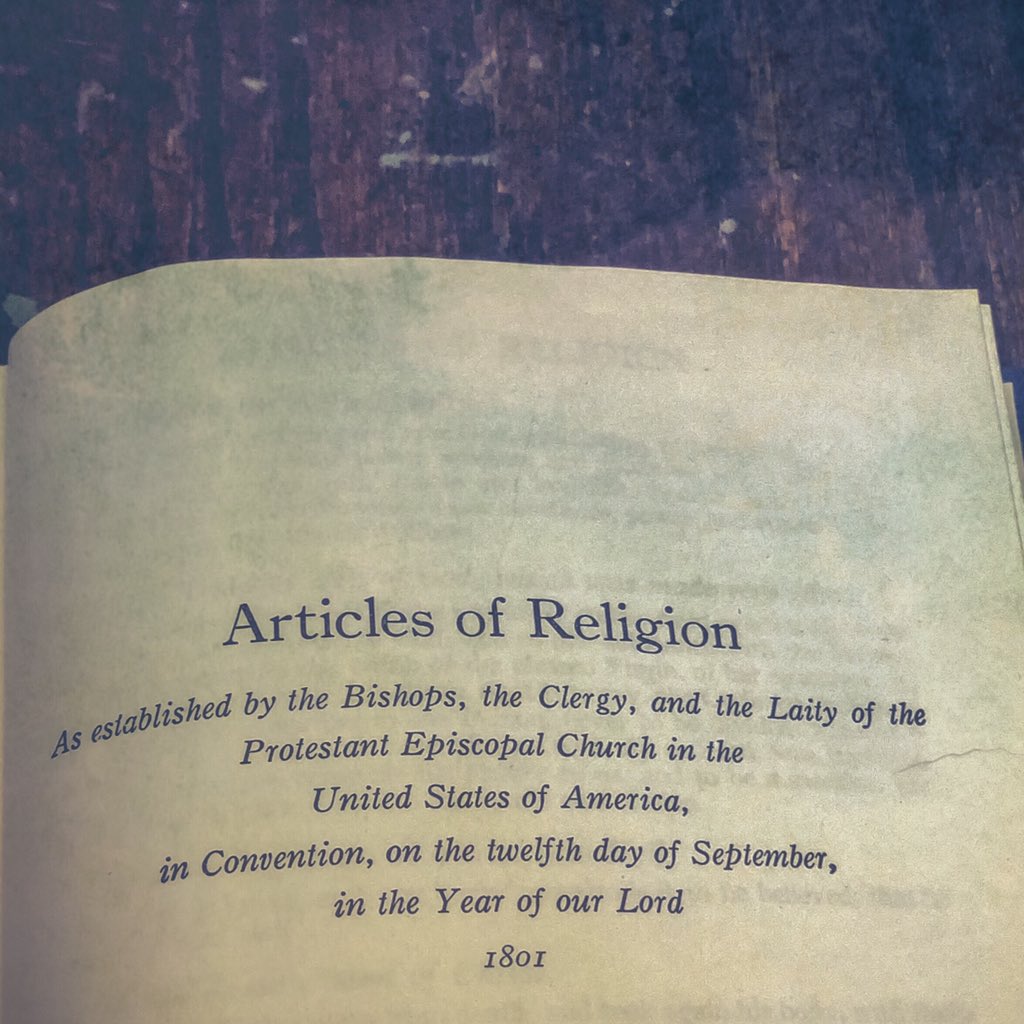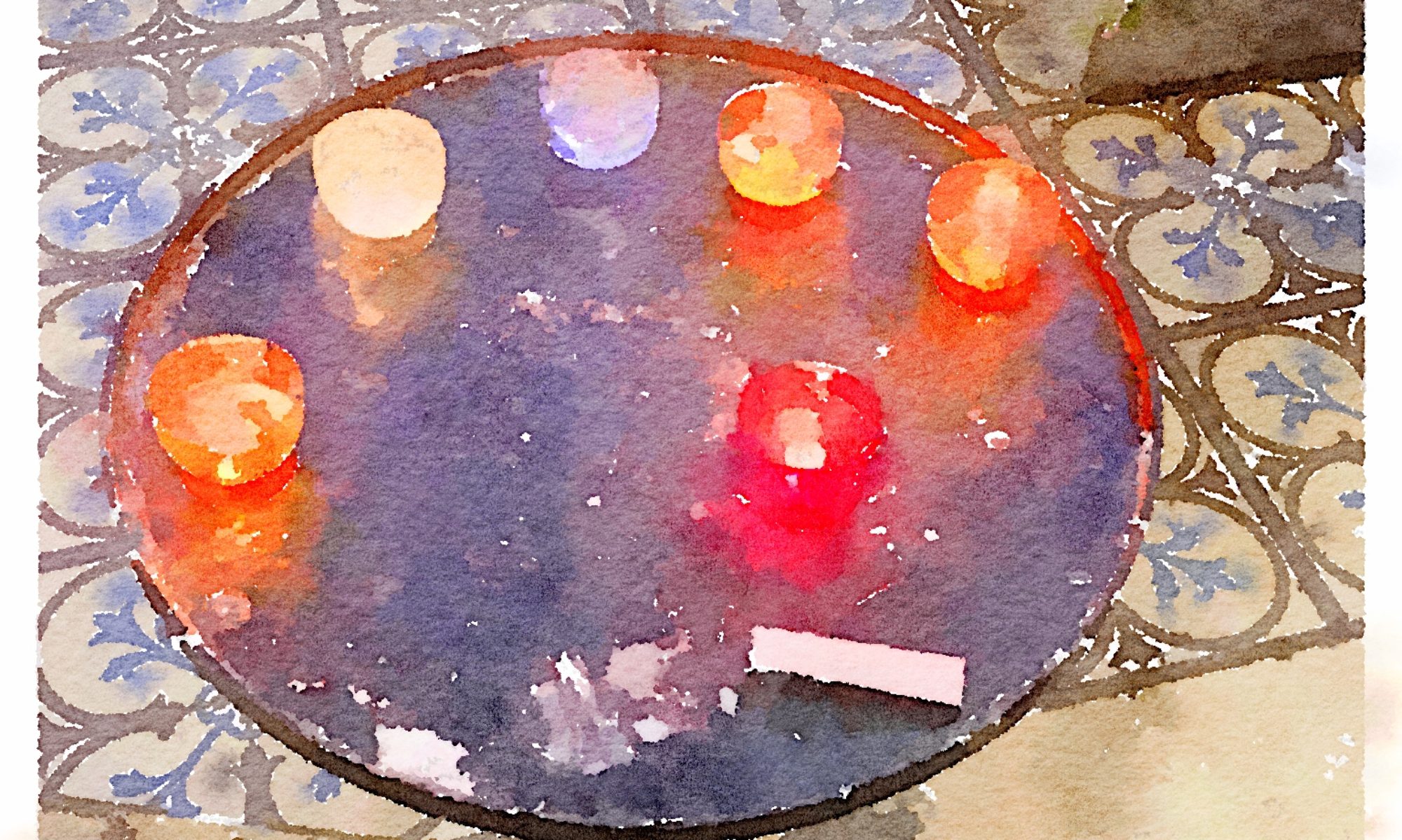
Christ did truly rise again from death, and took again his body, with flesh, bones, and all things appertaining to the perfection of Man’s nature; wherewith he ascended into Heaven, and there sitteth, until he return to judge all Men at the last day.
by Sara A. Misgen
Article IV turns to a strong affirmation of the bodily resurrection of Christ. In line with both the Apostles’ and Nicene Creeds, as well as the testimony of Scripture (“He is not here, for he has risen as he said!” – Matthew 28:6), Article IV states that Jesus truly rose, not in appearance or metaphor, but actually, truly, with his bones and his body and blood.
There is challenge here for those of us in modernity, who might be tempted to brush off the resurrection of Jesus as an impossibility or simply as a story with meaning, rather than a fact. But there is great wisdom in this affirmation of the bodily resurrection, and it is the heart of the Christian faith. As the Apostle Paul says in 1 Corinthians 15: “if Christ has not been raised, then our proclamation has been in vain and your faith has been in vain … If Christ has not been raised, your faith is futile and you are still in your sins.” But it’s one thing to proclaim the importance of the resurrection, and another to spell out why it matters. At its core, the resurrection is vital for four central reasons:
First, the resurrection is the defeat of death.
This is probably best expressed by Paul as he continues his argument in 1 Corinthians 15:
But in fact Christ has been raised from the dead, the first fruits of those who have died. For since death came through a human being, the resurrection of the dead has also come through a human being; for as all die in Adam, so all will be made alive in Christ.
As Paul helpfully lays out for us, the resurrection is something that impacts each one of us, because we all will die. But God does not desire death for any of us, instead wishing that we live. The resurrection shows that death is not the end of Jesus’s story, so it will not be the end of ours. Death is not the final word, but rather the penultimate one.
Second, the resurrection shows the importance of the body for Christian theology. Jesus is raised with “all things pertaining to the perfection of man’s nature,” as the article states, and this includes his flesh and bones. What the article is trying to show us with this statement is that our flesh and our bones belong to the goodness of what it means to be human. When God created humanity in the Garden of Eden, God declared them to be very good (Genesis 1:28). After the fall into sin (Genesis 3), aspects of what it means to be human changed and humanity is no longer in that state of original perfection. For thousands of years, theologians have debated and tried to figure out how sin has affected the human, and many of those answers centered on the body. The body has been thought to be an evil substance that weighs down our souls, that leads us to temptation and sin, and that impedes our spiritual lives. But the resurrection shows us that this is not the case. The fact that Jesus was raised to perfection in his body, with his bones and his tendons and his skin and his sweat and his beating heart shows us that our bodies are very good. They were created by God and they will be redeemed by God.
Through the resurrection of the flesh, God affirms our bodies as vital for what it means to be human. What’s more, God shows us that God loves our bodies, so much that humans should not be separated from them. Our bodies will go with us to the afterlife; they are part of who we are and we cannot exist as ourselves without them.
Third, the resurrection of the body is the source of our hope. The resurrection reminds us that God keeps God’s promises. Throughout the Bible, God promises redemption for his people. There are many dimensions to this redemption – including the redemption of the Israelites from bondage in Egypt (Exodus) and the social redemption of the outcasts, the enslaved, and the imprisoned (Leviticus 25:8-13) – but at the heart of it is God’s desire to redeem all of creation from the powers of sin, separation, and death that threaten all creatures, including the human. And from the very beginning of the Hebrew Bible, God has promised to overcome these powers, to defeat them and to bring all of Creation back to Godself. With the incarnation, Jesus’s ministry while on earth, and death, God is working to redeem everything. The resurrection shows us definitively that God is working against death, as God has promised. It stands as a testament to God’s creative work to bring all of creation to a perfected state, and it is the first stage in the fulfillment of God’s work to resurrect every human being.
Finally, Jesus’s resurrection shows us what our resurrected bodies will look like. Jesus is the firstfruits of all of us who will be raised, which means that our bodies will be like his when we are raised. Here, too, is another challenge for us: after all, Jesus is raised with the marks of the crucifixion, the holes in his hands and feet and side (John 20:26-28). He bears the marks of his suffering, even as his body is raised to perfection by the Father and the Holy Spirit. Like Jesus, so many humans are also covered in scars – marks on our skin from wipeouts when learning to walk or ride a bike; the signs of cooking accidents or kitchen mishaps; the marks of injuries from events that we tell stories about or those that we have since forgotten. We also carry emotional scars from the times when we have been rejected, hurt, abused, unloved, and mistreated. And, if any of you are at all like me, you might wish for your scars to be erased, forgotten, and left behind.
But Jesus keeps his scars, and there is hope for us in that. It shows us that God redeems us along with our histories, along with the things that have marked us and shaped us. God does not start from scratch in the resurrection, does not erase our stories, but rather raises all of us, everything about us, and perfects us. God promises that there will be no pain and suffering in the resurrection (Revelation 21), while simultaneously telling us that we will still be ourselves. Our hope is that, like Jesus’s body and story, our bodies and stories can be made perfect and good by God. And the resurrection of Jesus is the guarantee of that promise.
Yet the resurrection is only half of what this article has to say – the second half deals with the ascension, when after forty days on Earth Jesus ascends to heaven, where, as the creeds tell us, he sits at the right hand of the Father and waits to judge humanity on the last day. Thinking about this can often lead us to the wrong image, as if Jesus is watching us and keeping a detailed list of everything that we do wrong, so he can hold it over our heads when he returns on the last day. But instead, if we think back to Jesus’s sufferings, we realize that he knows what it is to be human.
Jesus waits in judgment at the Father’s right hand, not as a distant observer, but as someone who knows firsthand what it is to be human. Jesus waits in judgment as someone who knows what it’s like to be hurt, in pain, frustrated, angry, and scared. He’s truly and fully human, even now, after the resurrection, having returned to the Father. And so we trust that Jesus will be a compassionate judge.
The ascension, too, is a beautiful picture of redemption. Right now, humanity is with God in heaven in the body of Jesus the Christ. And right now, God is with us, continuing to work on earth through the power of the Holy Spirit. This is our reality, and this too, should give us hope for the day when all of humanity is together with God, redeemed, resurrected, and restored to right relationship.
Article IV is, at its heart, about this hope. It’s about hope for our bodies, for our stories, for our friends who have died, and for the moments when we ourselves will die. Article IV shows us that God loves and cares about creation so much that death will not have the last word. The resurrection helps us to believe that God is faithful, that we have hope, and that all of us can be redeemed. Together with the ascension, we are reminded that Jesus will judge us knowing fully well all that being human entails. And we’re reminded that humanity is with God in heaven right now, even while God is with us here on earth. Article IV has much to teach us about the good news of God in Christ, and the church does well to listen.
Sara A. Misgen is a PhD student in Religious Studies at Yale University, where her research focuses on descriptions of hell in early Christianity, apocalypses, gender, sexuality, and patristic eschatology. In her free time, she preaches, leads middle school youth group, and does all manner of church things at her Episcopal parish in New Haven, CT.
